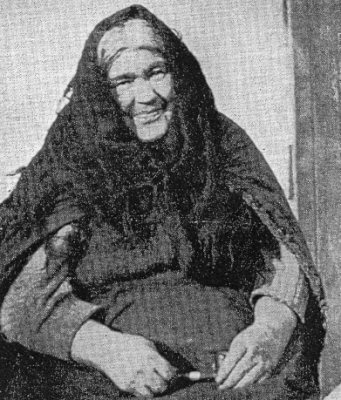The woman was old and feeble and grey
And bent with the chill of the winter’s day;
And the woman’s feet were weary and slow.
She stood at the crossing and waited long
Alone, uncared for, amid the throng.
Down the street, with laughter and shout
Glad in the freedom of ‘school let-out’
Came the boys, like a flock of sheep
Hailing the snow piled white and deep.
Past the woman, so old and grey
Hastened the children on their way,
Nor offered a helping hand to her
So meek, so timid, afraid to stir.
At last came one of the merry troop –
The gayest boy of all the group;
He paused beside her and whispered low,
‘I’ll help you across if you wish to go’;
He guided the trembling feet along
Proud that his own were firm and strong.
Then back again to his friends he went
His young heart happy and well-content
‘She is somebody’s mother, boys, you know,
Although she is old and poor and slow.
And I hope some fellow will lend a hand
To help my mother – you understand –
If e’er she be poor, and old and grey
When her own dear boy is far away.’
And ‘somebody’s mother’ bowed low her head
In her home that night, and the prayer she said
Was ‘God be kind to the noble boy
Who is somebody’s son, and pride and joy’.
…
This poem was part of the primary school syllabus of yesteryear, certainly in rural Irish communities.
Indeed then it was believed incumbent upon the primary teacher to help instil values such as respect for our elders and therefore to select appropriate texts accordingly.
My own mother can recite every word of this poem accurately, although it is four-score years since first she learned it!
